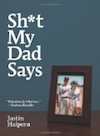Whether it's formally DRM or not, any content control system - no matter how well intentioned or well managed - has a future issue. I'll explain what I mean in a moment, but first, here's Engadget explaining the Keychest system Disney is touting at CES:
The easiest way to explain it is with an example and the most obvious to us is iTunes and Comcast. Both companies offer video on demand and use their own DRM to prevent copying. If both participated in KeyChest -- this isn't studio based -- and we bought a movie on iTunes, the next time we hit up Comcast VOD we'd be able to watch the same movie without paying again. The genius of the idea is how simple it is, basically the participantes report your purchases to the KeyChest and query it to see what else you bought.
While the technology was very different, PlaysForSure offered the same advantages - and when MS got tired of it, both their partners and the customers of those partners were left with content that was in limbo. Keychest suffers the same defect. What if companies like those in the example sign up, and, down the road, one or more of them starts to bail out. Over time, as the number of companies left supporting the technology shrinks, the chances of a PlaysForSure limbo result just grows.
The thing the studios (et. al.) need to get through their thick skulls is this: the amount of piracy done by end consumers is trivial. The big problem is the theft on their end (when bootleg copies appear before release, it wasn't some kid with Bittorrent), and the "professional" thieves who create copies from video made off the screen by early viewings. Those holes can be made smaller via better security measures - and they are where the big wins are. All of the efforts on the consumer side just irritate people and make their lives harder, while accomplishing very, very little.
Technorati Tags:
keychest, drm, copyright




